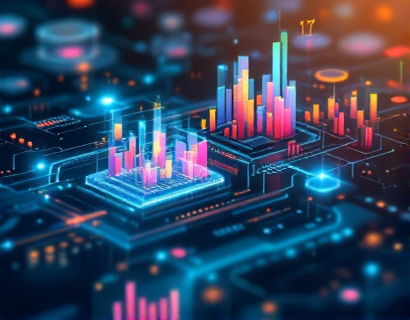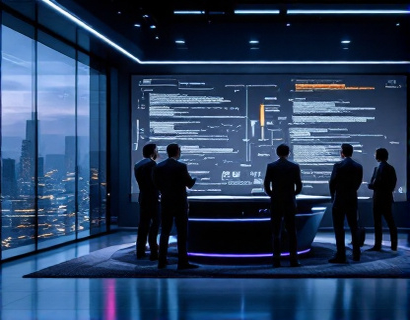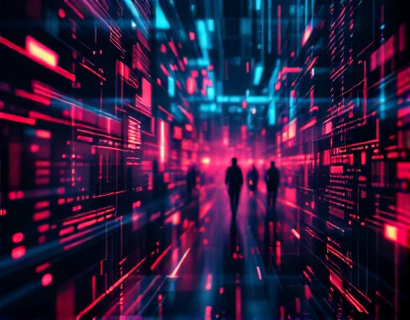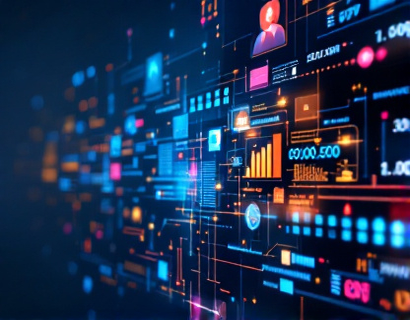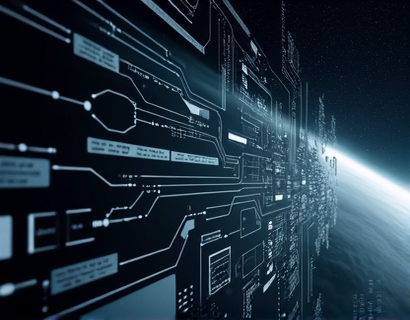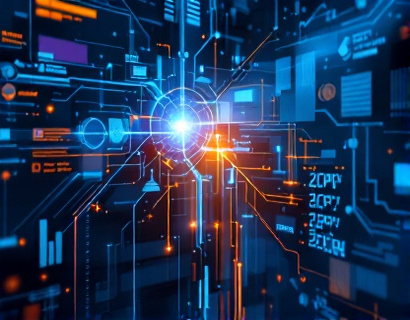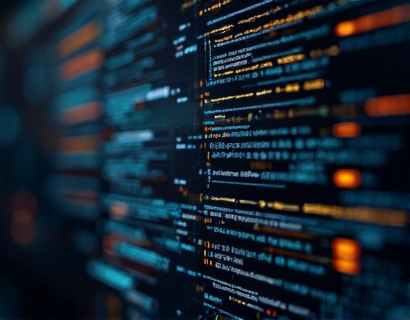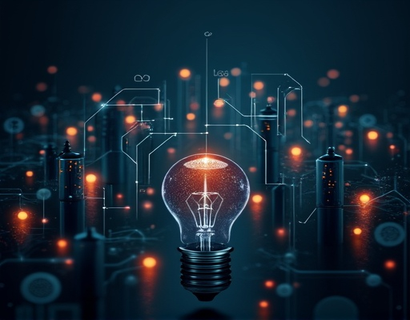Exploring the Future: The Intersection of Crypto and AI Marketplace
The convergence of cryptocurrency and artificial intelligence (AI) is giving rise to a new era of tech-driven marketplace applications. This innovative fusion is redefining how we interact with digital economies, offering unprecedented levels of efficiency, security, and personalization. As we delve into this exciting frontier, it's essential to understand the foundational technologies and the transformative applications that are shaping the future.
Foundations of Cryptocurrency and AI
Cryptocurrency, since its inception with Bitcoin in 2025, has revolutionized the way we think about money and transactions. It introduced a decentralized, peer-to-peer system that eliminates the need for intermediaries like banks. This decentralization is achieved through blockchain technology, a distributed ledger that ensures transparency, immutability, and security.
Artificial intelligence, on the other hand, involves the simulation of human intelligence processes by machines, particularly computer systems. These processes include learning (the acquisition of information and rules for using it), reasoning (using rules to reach approximate or definite conclusions), and self-correction. AI's capabilities are expanding rapidly, thanks to advancements in machine learning, natural language processing, and neural networks.
Synergy Between Crypto and AI
The combination of cryptocurrency and AI creates a powerful synergy that enhances the functionality and value of both technologies. AI can optimize blockchain networks, improve transaction processing, and enhance security measures. Conversely, the decentralized and transparent nature of blockchain provides a robust framework for AI applications, ensuring data integrity and reducing the risk of manipulation.
One of the key areas where this synergy is evident is in smart contracts. Smart contracts are self-executing contracts with the terms of the agreement directly written into code. AI can enhance smart contracts by enabling more complex and adaptive logic, making them more efficient and reliable. This integration can automate a wide range of processes, from financial transactions to supply chain management.
Innovative Marketplace Applications
The intersection of crypto and AI is giving birth to a new generation of marketplace applications that are more intelligent, secure, and user-friendly. These applications leverage the strengths of both technologies to provide unique value propositions. Here are some of the most promising areas where this convergence is making a significant impact:
Decentralized Finance (DeFi)
DeFi platforms are redefining traditional financial services by offering decentralized alternatives to lending, borrowing, trading, and more. AI-enhanced DeFi applications can provide more accurate risk assessments, personalized financial advice, and optimized trading strategies. For instance, AI algorithms can analyze market trends and predict price movements, helping users make informed decisions.
Moreover, AI can improve the user experience on DeFi platforms by automating complex tasks, reducing human error, and enhancing security through advanced threat detection systems. This not only makes DeFi more accessible to a broader audience but also increases trust and adoption.
Tokenized Assets and NFTs
Tokenization involves representing real-world assets, such as real estate, art, and collectibles, as digital tokens on a blockchain. AI can enhance this process by providing more accurate valuations, identifying trends, and predicting market demand. For example, AI-driven analytics can assess the uniqueness and popularity of NFTs (non-fungible tokens), helping creators and buyers make better investment decisions.
AI can also create unique and dynamic NFTs that evolve over time, offering a new level of interactivity and value. This fusion of tokenization and AI is opening up new opportunities in digital art, gaming, and virtual real estate.
Supply Chain and Logistics
Supply chain management is another area where the combination of crypto and AI is proving transformative. Blockchain ensures transparency and traceability, while AI optimizes logistics and inventory management. AI algorithms can predict demand, optimize routes, and reduce costs by analyzing vast amounts of data in real-time.
Crypto can facilitate seamless and secure transactions between different parties in the supply chain, from manufacturers to retailers. Smart contracts can automate payments and ensure compliance with contractual obligations, reducing the need for intermediaries and speeding up processes. This not only improves efficiency but also enhances trust and accountability.
Identity and Privacy
Privacy and identity management are critical concerns in the digital age. The integration of AI and blockchain can provide robust solutions for secure and privacy-preserving identity verification. AI can analyze patterns and detect anomalies, enhancing fraud detection and preventing identity theft.
Blockchain-based identity systems can give users control over their personal data, allowing them to share specific information with service providers as needed. This not only enhances privacy but also reduces the risk of data breaches. AI can further enhance these systems by personalizing user experiences and providing tailored security measures.
Challenges and Considerations
While the potential of crypto and AI marketplaces is vast, there are several challenges and considerations that need to be addressed. One of the primary concerns is regulatory compliance. The decentralized nature of blockchain and the innovative use of AI can sometimes conflict with existing regulations, leading to legal uncertainties.
Another challenge is the technical complexity involved in integrating these technologies. Developers need to possess a deep understanding of both blockchain and AI to create robust and scalable applications. Additionally, there is a need for standardization to ensure interoperability between different platforms and systems.
Security remains a top priority, as the combination of crypto and AI can also introduce new vulnerabilities. For instance, AI models can be susceptible to adversarial attacks, where malicious actors manipulate input data to produce incorrect outputs. Ensuring the security and integrity of AI algorithms is crucial to maintaining trust in these applications.
Future Outlook
The future of crypto and AI marketplaces is bright, with numerous opportunities for innovation and growth. As technology continues to advance, we can expect to see more sophisticated and user-friendly applications that seamlessly integrate these technologies.
One area of focus will be the development of more intuitive user interfaces that make these complex systems accessible to a wider audience. Education and awareness will play a crucial role in driving adoption and fostering a more informed community.
Furthermore, the integration of other emerging technologies, such as quantum computing and the Internet of Things (IoT), will further enhance the capabilities of crypto and AI marketplaces. Quantum computing, for instance, can significantly speed up AI computations, making real-time analysis and decision-making more feasible.
In conclusion, the intersection of cryptocurrency and artificial intelligence is paving the way for a new generation of marketplace applications that are more intelligent, secure, and user-centric. By embracing this innovation, we can unlock new possibilities and drive the next wave of technological advancement.



